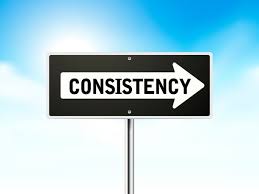In the dynamic world of sales, client meetings play a pivotal role in building relationships, understanding needs, and ultimately closing deals. However, not all client meetings are created equal. To truly make the most of your interactions, it’s essential to approach each meeting with a strategic mindset and a focus on productivity. In this article, we’ll delve into some effective strategies to elevate your client meetings and drive better outcomes.
1. Preparation is Key
A successful client meeting begins well before you step into the conference room or join a virtual call. Thorough preparation lays the foundation for a productive conversation. Research your client’s industry, company background, pain points, and current challenges. This will enable you to tailor your pitch and recommendations to their specific needs.
2. Set Clear Objectives
Before the meeting, establish clear objectives for what you hope to achieve. Whether it’s introducing a new product, addressing concerns, or negotiating terms, defining your goals will help you stay on track and measure the success of the meeting.
3. Understand the Client’s Perspective
Productive client meetings involve active listening and empathy. Take the time to understand your client’s perspective, challenges, and goals. Ask open-ended questions to encourage them to share their thoughts. This not only builds rapport but also provides valuable insights you can use to tailor your pitch.
4. Craft a Compelling Value Proposition
One of the most important aspects of a client meeting is communicating the value your product or service offers. Craft a clear and compelling value proposition that highlights how your solution addresses the client’s pain points and contributes to their success.
5. Present Solutions, Not Just Features
Avoid turning the meeting into a monologue about your product’s features. Instead, focus on presenting solutions to the client’s challenges. Illustrate how your product/service can solve specific problems or improve their operations. Use case studies and success stories to provide tangible evidence of your solution’s effectiveness.
6. Keep it Interactive
Engage the client by encouraging questions and discussions throughout the meeting. An interactive dialogue keeps the client invested and provides opportunities to address any concerns in real-time.
7. Address Concerns and Objections
Client meetings are the ideal platform to address any concerns or objections head-on. Anticipate potential roadblocks and prepare responses that showcase your expertise and commitment to resolving issues.
8. Provide a Clear Call to Action
End the meeting on a strong note by outlining the next steps. Whether it’s scheduling a follow-up call, providing additional resources, or sending a proposal, a clear call to action ensures that both parties are aligned on the way forward.
9. Follow Up Promptly
After the meeting, send a personalized follow-up email that recaps the key points discussed, reiterates the value proposition, and outlines the agreed-upon next steps. This reinforces your professionalism and commitment to their success.
10. Continuously Improve
Each client meeting is a learning opportunity. Take time to reflect on what went well and areas that could be improved. Consider seeking feedback from colleagues or mentors to refine your approach for future meetings.
In conclusion, client meetings are a crucial touchpoint in the sales process. By approaching them with thorough preparation, active listening, and a solutions-oriented mindset, you can maximize their productivity and move closer to achieving your sales goals. Remember, a productive client meeting isn’t just about making a sale—it’s about building trust, fostering relationships, and creating lasting value for both parties.
Interested in more? Explore our Sales Training Programs.
Let’s connect and discuss how we can help transform your team’s sales results.
Optimé International | Recognized as a Top Sales Training Company (2024) by Selling Power Magazine



